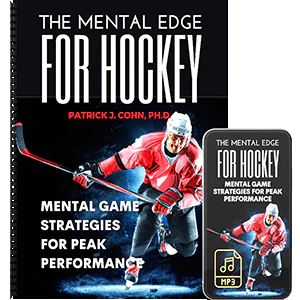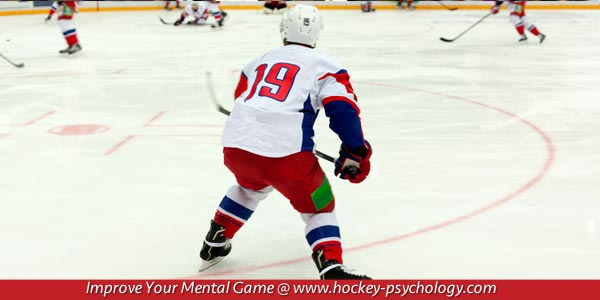Committing Yourself to The Process
All hockey players have heard the phrase, “It doesn’t matter if you win or lose, it’s how you play the game.” Let’s spin this phrase in a different way… How you play the game (your level of effort, intensity, discipline and focus) is a better indication of your likelihood to succeed in the future, than the outcomes of one or two games.
Achieving success over the course of a season is a process. Successful players and teams focus on ways to improve “their game” regardless of the outcome of a game.
When you are focused on “your game,” you commit yourself to the process of continual improvement.
With this mindset, a loss doesn’t define you but becomes a learning experience.
When you are committed to the process of honing “your game,” you have a clearer focus for practice and training sessions.
When you are committed to playing your game, you focus on execution and are better equipped to manage your emotions.
The Toronto Maple Leafs, who are in the hunt for a wild card spot, have played poorly down the final stretch of the season. Toronto Head Coach Randy Carlyle points to his team’s inability to execute and mental breakdowns as reasons for their slow starts to games and 2-8 record over the last ten games.
Carlyle believes his team has not played as well as expected due to their inability to manage anxiety and harness emotion, “What happens is the nervousness grasped our group at times and we just got into that freeze mode and stopped skating and doing what we had to do to be successful.”
The Leafs started the season 10-4 despite not playing up to the level of Carlyle’s expectations.
Carlyle feels the Leafs’ early season record provided his team with a false sense of security, “I don’t think we played as well as our record indicated earlier in the year. We found ways to win and it masked a lot of deficiencies.”
Focusing on your Game
You want to focus on your strengths, such as quickness, and utilize those strengths in your game plan. Committing to your game plan to play to your strengths will help you trust in your skills.
If you are indecisive or second-guess yourself on the ice, it’s harder to play freely and trust what you practice. Always objectively assess each game performance without emotion. Focus on how you can improve your game based on your game performance.
Improve your mental toughness with one-on-one mental coaching with Dr. Cohn!
Related Articles on Hockey Mental Game:
- Hockey Mental Game and Pregame Jitters
- The Rangers: Focus on Your Game Plan
- Focusing on Playing Your Game in Hockey
*Subscribe to The Sports Psychology Podcast on iTunes
*Subscribe to The Sports Psychology Podcast on Spotify
The Mental Edge for Hockey

The Mental Edge for Hockey teaches you proven and simple mental game strategies so you can overcome fear of failure, lack of confidence, slumps or poor composure, take your practice game to competition, and boost your confidence in hockey. You learn simple, actionable mental game strategies to help you perform at your peak!
I’ve worked with athletes for 30 plus years – and know the top challenges that undermine performance when you perform in games. Now you can tap into my expertise and experience in coaching hockey players on the mental game.
In this program, you’ll learn the TOP 10 mental training lessons for hockey players – the same strategies I teach one-on-one athletes I coach on the mental game. My clients pay thousands of dollars for personal coaching, but now you can have the same strategies to improve your mental game – at a fraction of the price.

Leave a Reply